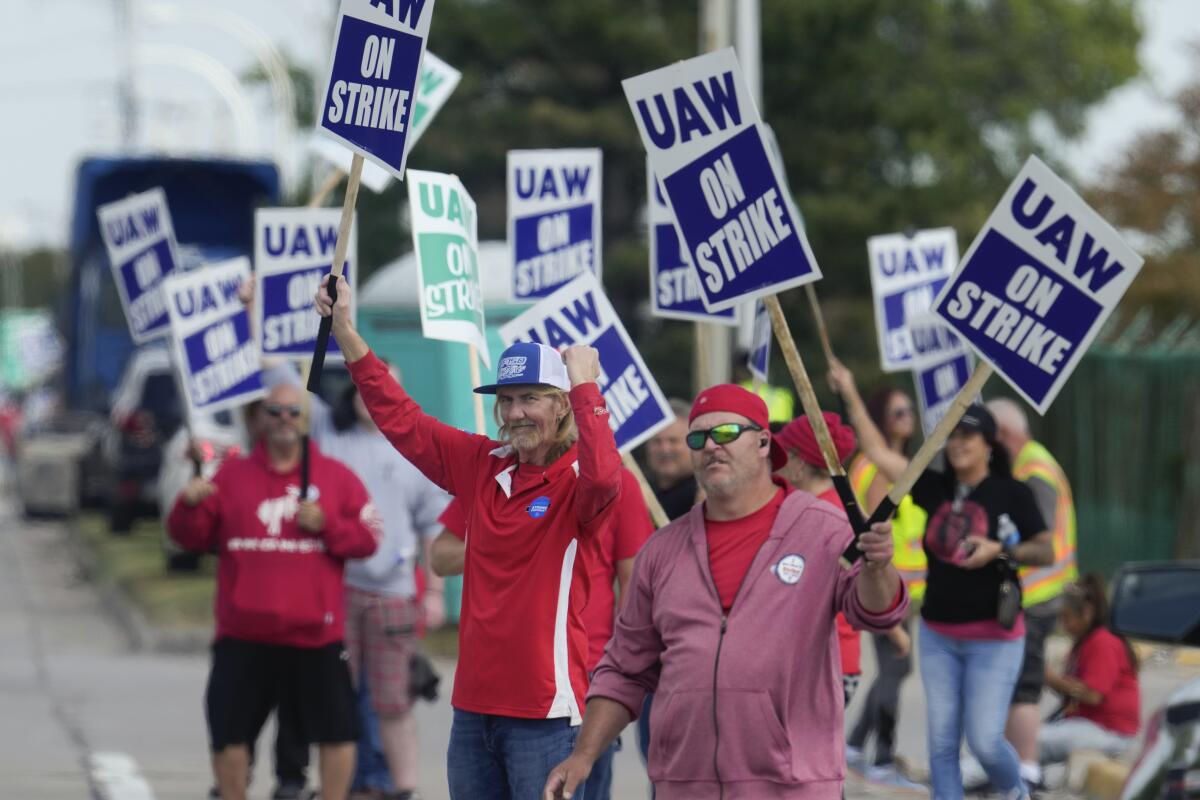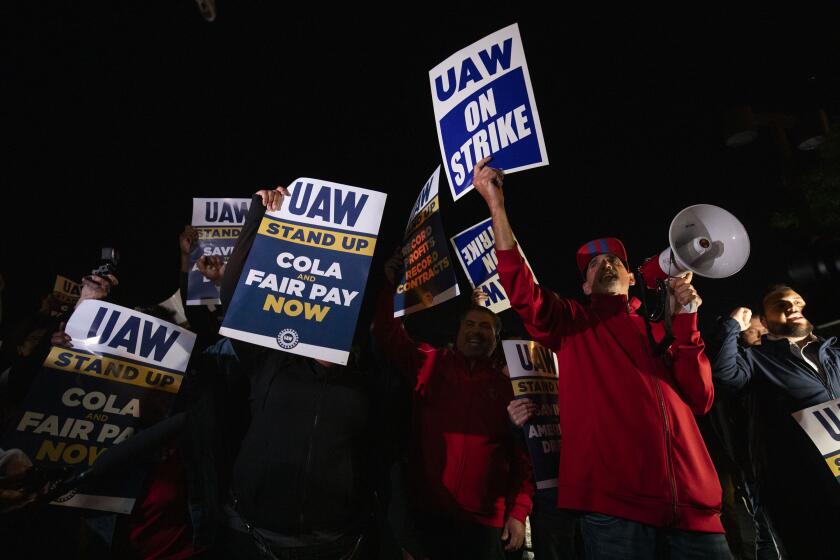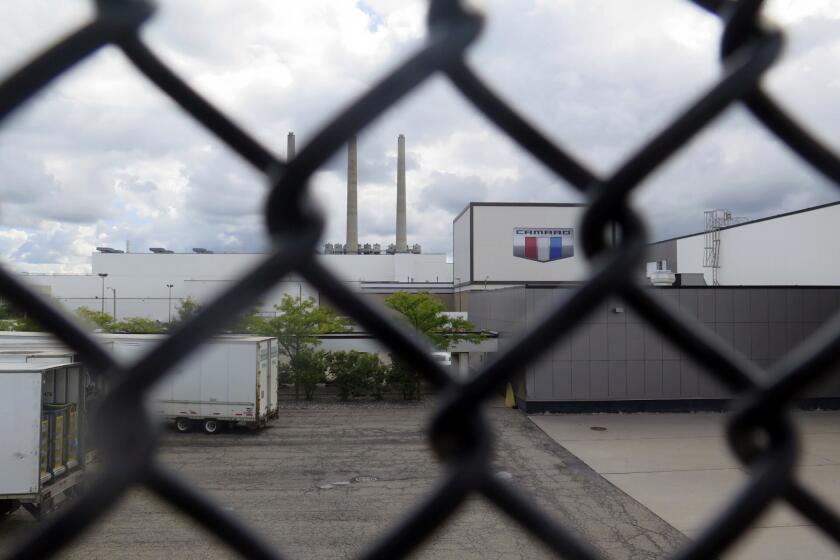Carmakers and the United Auto Workers are talking. No signs of a breakthrough to end the strike

The United Auto Workers and Detroit’s Big Three carmakers resumed talks aimed at ending a strike now in its fourth day, and under the threat that the walkout could soon spread.
Stellantis said it resumed negotiations with the union Monday and described the talks as “constructive.” A spokesman for General Motors said representatives of the company and the UAW also were continuing to negotiate.
However, UAW President Shawn Fain said on NPR, “We have a long way to go,” and if the companies don’t respond to the union’s demands, “then we will escalate action.”
So far the strike is limited to about 13,000 workers at three factories — one each at GM, Ford and Stellantis, the successor to Fiat Chrysler.
However, the union’s strategy hinges on its ability to escalate the strike quickly, and the carmakers are warning of potential layoffs as the limited strike reduces the amount of material needed at plants that remain open.
About 13,000 autoworkers went on strike at three plants after contract talks over wages and benefits broke down late Thursday.
GM said Monday that 2,000 UAW-represented workers at an assembly plant in Kansas City are “expected to be idled as soon as early this week” because of a shortage of supplies from a GM plant near St. Louis, where workers walked off the job Friday.
Workers at the Kansas City plant build the Chevrolet Malibu and Cadillac XT4.
The strike could begin to affect suppliers and their employees too. CIE Newcor told Michigan officials that it expects a one-month closure of four plants in the state to start Oct. 2, idling nearly 300 workers.
In a sign of concern of the strike’s potential economic and political fallout, the Biden administration stepped up its response.
Treasury Secretary Janet L. Yellen said she is hoping for a quick resolution, but that it is too soon to gauge the strike’s effects.
With a deadline looming, the United Auto Workers union and Detroit’s three automakers, General Motors, Ford and Stellantis, remain far apart in contract talks and the union is preparing to strike.
“It’s premature to be making forecasts about what it means for the economy. It would depend on how long the strike lasts and who would be affected by it,” she said on CNBC.
Yellen said labor activism this year — strikes by Hollywood writers and actors, by workers at about 150 Starbucks locations and walkouts that were narrowly averted at United Parcel Service and West Coast ports — has been driven by a strong labor market and high demand for workers.
President Biden is sending two top administration officials to Detroit to meet with both sides. Biden has backed the UAW in brief public comments, saying that the automakers have not fairly shared their record profits with workers.
An administration official said Monday that acting Labor Secretary Julie Su and senior aide Gene Sperling will not serve as mediators — they won’t be at the bargaining table — but are going to Detroit “to help support the negotiations in any way the parties feel is constructive.” The official was not authorized to discuss private discussions and spoke anonymously.
Fain said the Biden administration won’t broker a deal.
“This is our battle. Our members are out there manning the picket lines,” he said Monday on MSNBC. “This battle is not about the president, it’s not about the former president.”
The UAW is seeking wage increases of 36% over four years, while the companies have offered about 20%. The union is also demanding a 32-hour workweek for 40 hours of pay, and other changes.
Rather than launching an all-out strike of its 146,000 members, the union opted to target three factories, a plan that could make the union’s $825-million strike fund last longer. Workers walked out of a GM plant in Wentzville, Mo.; a Ford plant near Detroit; and a Stellantis factory in Toledo, Ohio, that produces Jeeps.
A key feature of the UAW strategy is the threat of escalating the strike if the union is unhappy with the pace of bargaining. On Friday, Fain said more factories could be targeted: “It could be in a day, it could be in a week.”
More to Read
Inside the business of entertainment
The Wide Shot brings you news, analysis and insights on everything from streaming wars to production — and what it all means for the future.
You may occasionally receive promotional content from the Los Angeles Times.












